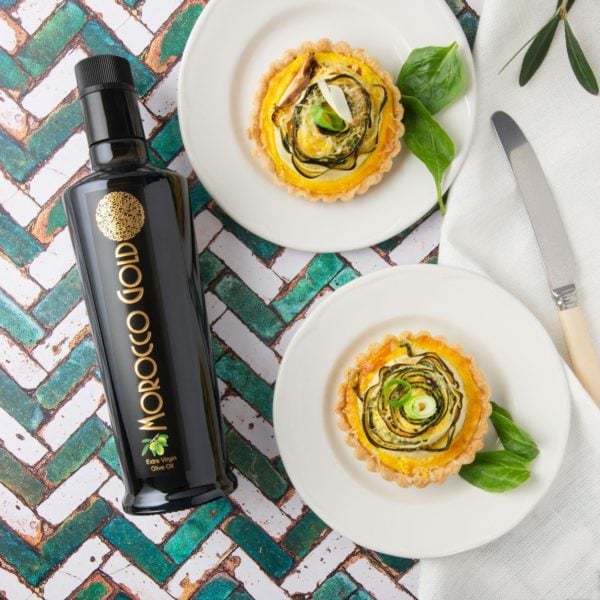How Extra Virgin Olive Oil Can Reduce Inflammation Linked To Skin Condition
Updated February 27th 2024

Summary
Contents
- Report Lists Extra Virgin Olive Oil As Key Food To Help Reduce Psoriasis.
- What Is Psoriasis And How Can Extra Virgin Olive Oil Help?
- The Best Diet To Boost Antioxidants And Reduce Inflammation.
- Why The Mediterranean Diet May Reduce Symptoms Of Psoriasis
Report Lists Extra Virgin Olive Oil As Key Food To Help Reduce Psoriasis.
A fascinating new medically reviewed report from verywellhealth has listed heart-healthy extra virgin olive oil as one of the key foods to help reduce symptoms of psoriasis – a chronic skin condition.
The report, which lists the foods to avoid and foods to include in your diet if you suffer from psoriasis, states that olive oil, flaxseed oil and safflower oil contain anti-inflammatory fatty acids and antioxidants. Not all oils are heart healthy, and some provide more omega-6 fatty acids than others.
The polyphenols Oleouropein Aglycone and Oleocanthal within extra virgin olive oil help to combat inflammatory diseases Morocco Gold extra virgin olive oil is rich in both of these polyphenols.
By incorporating extra virgin olive oil into a balanced diet, individuals may experience an alleviation in the symptoms of psoriasis, highlighting the oil’s role as a natural anti-inflammatory agent.
What Is Psoriasis And How Can Extra Virgin Olive Oil Help?
NHS.UK defines Psoriasis as a skin condition that causes red, flaky, crusty patches of skin covered with silvery scales.
It affects around 2% of people in the UK and can start at any age. Most people are only affected with small patches but, in some cases, the patches can be itchy or sore.
Extra virgin olive oil is hailed for its numerous health benefits, including its ability to reduce inflammation associated with conditions like psoriasis. This attribute stems from its high content of oleic acid, a monounsaturated fatty acid, and its wealth of antioxidants, such as vitamin E and polyphenols. These compounds work synergistically to dampen the body’s inflammatory response. They inhibit the production of pro-inflammatory enzymes, thereby reducing the prevalence of inflammatory markers in the body. Additionally, the rich presence of these antioxidants helps combat oxidative stress, which is thought to exacerbate psoriasis and other inflammatory conditions.
According to Verywellhealth, you may be able to reduce flare-ups and psoriasis symptoms by making changes to your diet, including increasing your intake of extra virgin olive oil.

Since psoriasis is caused by an overactive immune response and inflammation, foods that help reduce inflammation are recommended. These include opting for oils, such as Morocco Gold Extra Virgin Olive Oil, which contain powerful quantities of anti-inflammatory fatty acids and antioxidants. The report encourages you to focus on adding these heart-healthy oils to your diet:
- Olive oil
- Flaxseed oil
- Safflower oil
Polyphenols are a key component in extra virgin olive oil and are considered to be one of the best health enhancing benefits within the oil. Many of the fruits and vegetables we consume contain a large number of compounds critical for life. One such type of compound is known as antioxidants. Polyphenols are powerful antioxidants.
Report Lists Extra Virgin Olive Oil As Key Food To Help Reduce Psoriasis.
In addition to choosing a healthy fat, you should also try to include as many of the following foods in your diet as possible:
Fruits and Vegetables
Fruits and vegetables are staples in anti-inflammatory diets because they are full of vitamins, minerals, fiber, and antioxidants. Antioxidants are compounds that protect cells from damage and help reduce inflammation.2
It’s recommended to regularly include fruits and non-starchy vegetables in your meals and snacks, such as:
- Cauliflower, brussels sprouts, asparagus, broccoli, onions
- Dark, leafy greens like kale, arugula, spinach
- Berries, cherries, grapes, pears, melons
Fatty Fish
Many varieties of fish provide a type of fat with anti-inflammatory properties, called omega-3 fatty acids. Research suggests a diet rich in omega-3 fatty acids, while limiting the amount of omega-6 fatty acids (found in foods like red meat, corn, and soy), helps manage the symptoms of inflammatory conditions, like rheumatoid arthritis and psoriasis.1
Examples of fatty fish include:
Probiotics
Eating foods with probiotics (such as yogurt, sauerkraut, miso, or kombucha) or taking probiotic supplements helps support a healthy gut and may help with psoriasis. A 2019 randomized control trial found that taking a probiotic supplement helps reduce the severity of symptoms and the number of psoriasis flares.8
Supplements
With a balanced diet, many people can get enough of the vitamins and minerals they need. Still, supplements may help if there are any deficiencies or additional nutrient needs. A 2014 study found that nutritional supplements that may help reduce inflammation and symptoms in people with psoriasis include:9
- Fish oil or omega-3s
- Vitamin D
- Vitamin B-12
- Selenium10
Foods to Avoid With Psoriasis
While Psoriasis sufferers are urged to include plenty of healthy fats such as extra virgin olive oil and fresh vegetables in their diet, the report helpfully also emphasises the foods to avoid. These include:
Red Meat
Red meat is high in saturated fat and a type of polyunsaturated fat called omega-6 fatty acid. Omega-6s lead to the production of compounds that increase the amount of inflammation in the body. Eating too much red meat and other foods high in omega-6 could trigger symptoms.
Foods to limit include:
- Beef
- Pork
- Sausage, bacon, and other processed meat
Dairy Products
Research suggests dairy products may promote inflammation and trigger symptoms of psoriasis. During a 2017 survey, people reported dairy as one of their psoriasis triggers. However, more research is needed to understand the true effects of eating dairy on psoriasis.
Gluten
Gluten is a protein found in some grains like wheat and barley. It’s present in foods like bread, pasta, bagels, and some cereals. For people with celiac disease, an intolerance to gluten, it may lead to inflammation and increase psoriasis symptoms.
Processed Foods
Processed foods are associated with an increased risk for multiple chronic diseases, such as diabetes, heart disease, obesity, and autoimmune conditions. Often the vitamins and minerals are stripped from food during processing, taking away most of the helpful nutrients.
Eating processed foods may increase inflammation in the body, which may lead to psoriasis flare-ups. Try to limit foods like:
- Prepackaged foods
- Processed meats
- Desserts and baked goods
- Canned foods
- Condiments and packaged sauces
Nightshade
Nightshade plants belong to a type of plant family called Solanaceae. A survey found that people with psoriasis reported improvements in symptoms when removing nightshades from their diet. Common vegetables and spices in the nightshade family include:
- Tomatoes
- Eggplant
- Potatoes
- Peppers
- Paprika
Alcohol
Another reported trigger for psoriasis symptoms is alcohol. Regular alcohol consumption impacts the body and immune system in a variety of ways. It’s recommended for people with psoriasis to avoid drinking alcohol or to only drink on occasion.
Caffeine
Caffeine may be a trigger for psoriasis symptoms. Some people with psoriasis report improvements in severe symptoms when removing caffeine from their diet. Drinks with caffeine to limit with psoriasis include:
- Coffee
- Black and green teas
- Soda and energy drinks with caffeine
Citrus Fruits
Some people experience sensitivities or allergies to citrus fruits, which may lead to inflammation. There is little research about the effects of citrus fruits on psoriasis. Still, it potentially could trigger symptoms for people with sensitivities to citrus fruit.
Why The Mediterranean Diet May Reduce Symptoms Of Psoriasis
The Mediterranean diet is well known for its anti-inflammatory benefits. The diet promotes whole grains, fruits, vegetables, and healthy fats. The foods in the diet are full of antioxidants, vitamins, minerals, and other nutrients that may benefit psoriasis.
A 2015 study found that people who didn’t eat a Mediterranean-style diet were more likely to experience psoriasis symptoms than those who did. The study also showed that the diet might help reduce the severity of psoriasis symptoms. See full details of the report please at verywellhealth.com.
